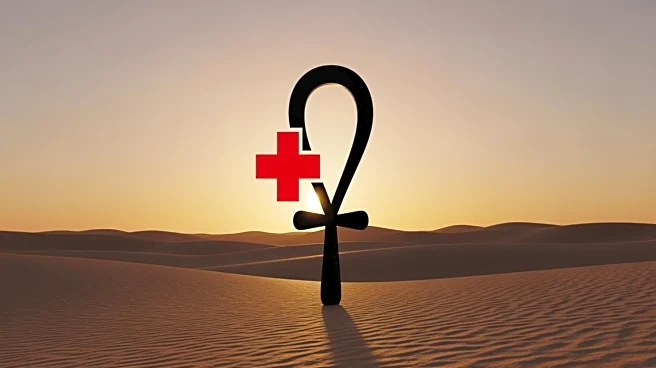What's Happening?
Teams from Egypt and the International Committee of the Red Cross (ICRC) have been granted permission by Israeli authorities to search for the bodies of hostages taken during the October 7 attacks. This operation is part of a US-brokered ceasefire deal,
which requires Hamas to hand over all hostages' remains. The search is taking place beyond the 'yellow line,' a boundary established as part of the ceasefire agreement. The Egyptian team, working with the ICRC, is using excavator machines and trucks to locate the bodies. This development follows intense bombardment by Israel, which has left much of Gaza in ruins. The involvement of Egyptian excavation teams is a new element in the ongoing efforts to retrieve the bodies.
Why It's Important?
The collaboration between Egypt, the ICRC, and Israel marks a significant step in the implementation of the ceasefire agreement, highlighting the complex international dynamics at play. The retrieval of hostage bodies is crucial for the families involved, providing them with closure and the opportunity for proper burials. This operation also underscores the humanitarian challenges in conflict zones, where international cooperation is essential to address the aftermath of hostilities. The involvement of Egypt, a key signatory of the Trump-brokered Gaza peace plan, reflects the broader geopolitical interests in stabilizing the region and ensuring compliance with international agreements.
What's Next?
The success of this operation could influence future negotiations and peace efforts in the region. The international community will likely monitor the situation closely, assessing the effectiveness of the ceasefire and the cooperation between involved parties. The outcome may also impact the political landscape in Gaza and Israel, potentially affecting future diplomatic relations and peace initiatives.

















